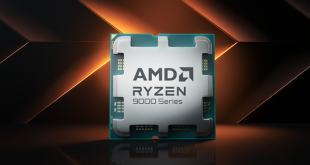ARM Holdings, the company whose microprocessor architectures power the vast majority of mobile devices, is working on the second-generation of 64-bit central processing units based on the ARMv8 micro-architecture. Not a lot of details are known about the chips now. What ARM has revealed so far is that they are code-named Maya and Artemis and will target a broader range of applications than today’s Cortex-A53 and Cortex-A57.
“In Q2 we started licensing new technology roadmap products that we have not actually announced yet,” said Simon Segars, chief executive officer of ARM during an earnings conference call on Tuesday. “Today these [products] go by the code-names of ‘Maya’ and ‘Artemis’.”
The head of ARM did not reveal any details about the new products, but he did indicate that the “Maya” and “Artemis” are one of many solutions that ARM is developing for various market segments.
“Artemis and Maya are the fruits of the investment that we have made in R&D over the years,” said Mr. Segars. “Artemis and Maya are just two of the things that are coming out now, but we have many investments going on in many different product lines to help us drive the business forward.”
In addition to the mobile computing market, ARM plans to target automotive, datacenter, networking as well as Internet-of-things markets.
ARM can license three types of intellectual property: its instruction set/architecture (e.g., ARMv8-A, ARMv7) that allows chip developers to design their own ARM-compatible processing cores; logical implementation of ARM’s processing cores (e.g., Cortex-A15/A17/A53/A57) that allow to integrate them into various designs made using various process technologies; physical implementation of processing cores that are designed for specific process technologies and can be relatively easily incorporated into system-on-chip designs. The “Maya” and “Artemis” are likely to be the new cores from ARM. The Cortex-A53 and A57 were initially known under code-names “Apollo” and “Atlas”, respectively.
So far ARM has signed 50 ARMv8-A licenses with 28 licensees.
Discuss on our Facebook page, HERE.
KitGuru Says: It is nice to see that ARM is not standing still and is working on new processing cores. Keeping in mind that the ARMv8 instruction-set has been licensed by numerous advanced chip designers who are now working on custom 64-bit ARM cores, it will be interesting to see whether those cores turn out to be more advanced than ARM’s “Maya” and “Artemis”. If they do, then certain customers of ARM will be much more competitive than the other…
 KitGuru KitGuru.net – Tech News | Hardware News | Hardware Reviews | IOS | Mobile | Gaming | Graphics Cards
KitGuru KitGuru.net – Tech News | Hardware News | Hardware Reviews | IOS | Mobile | Gaming | Graphics Cards



